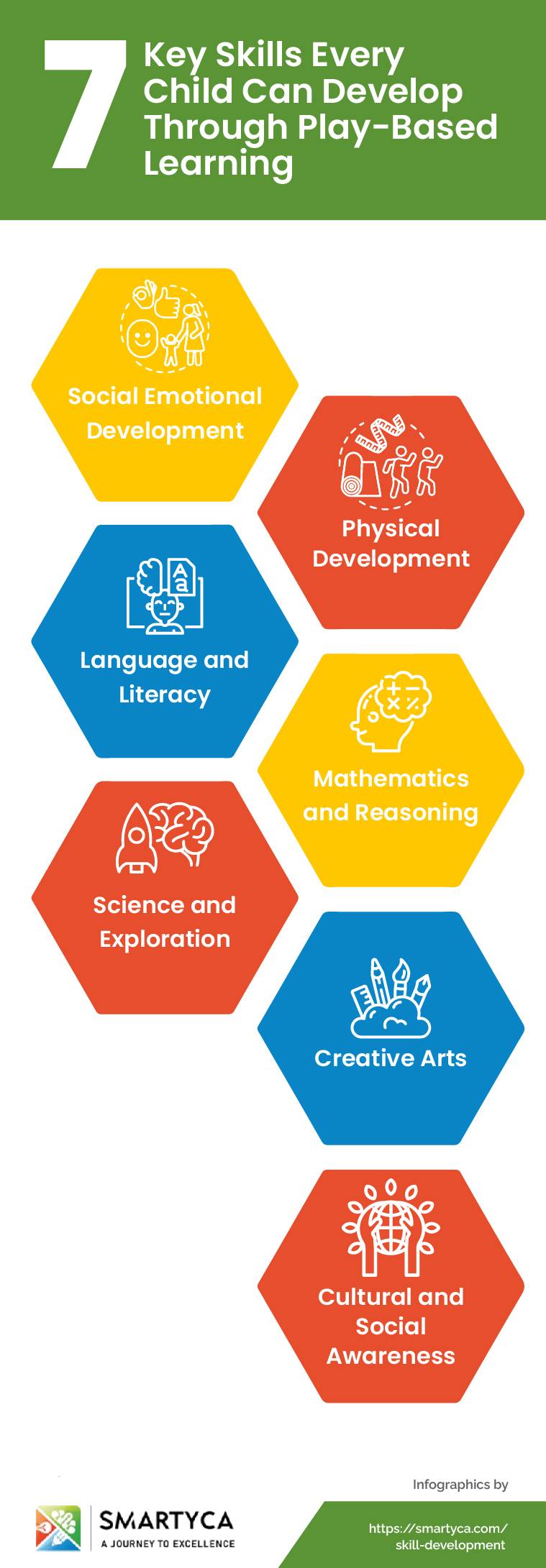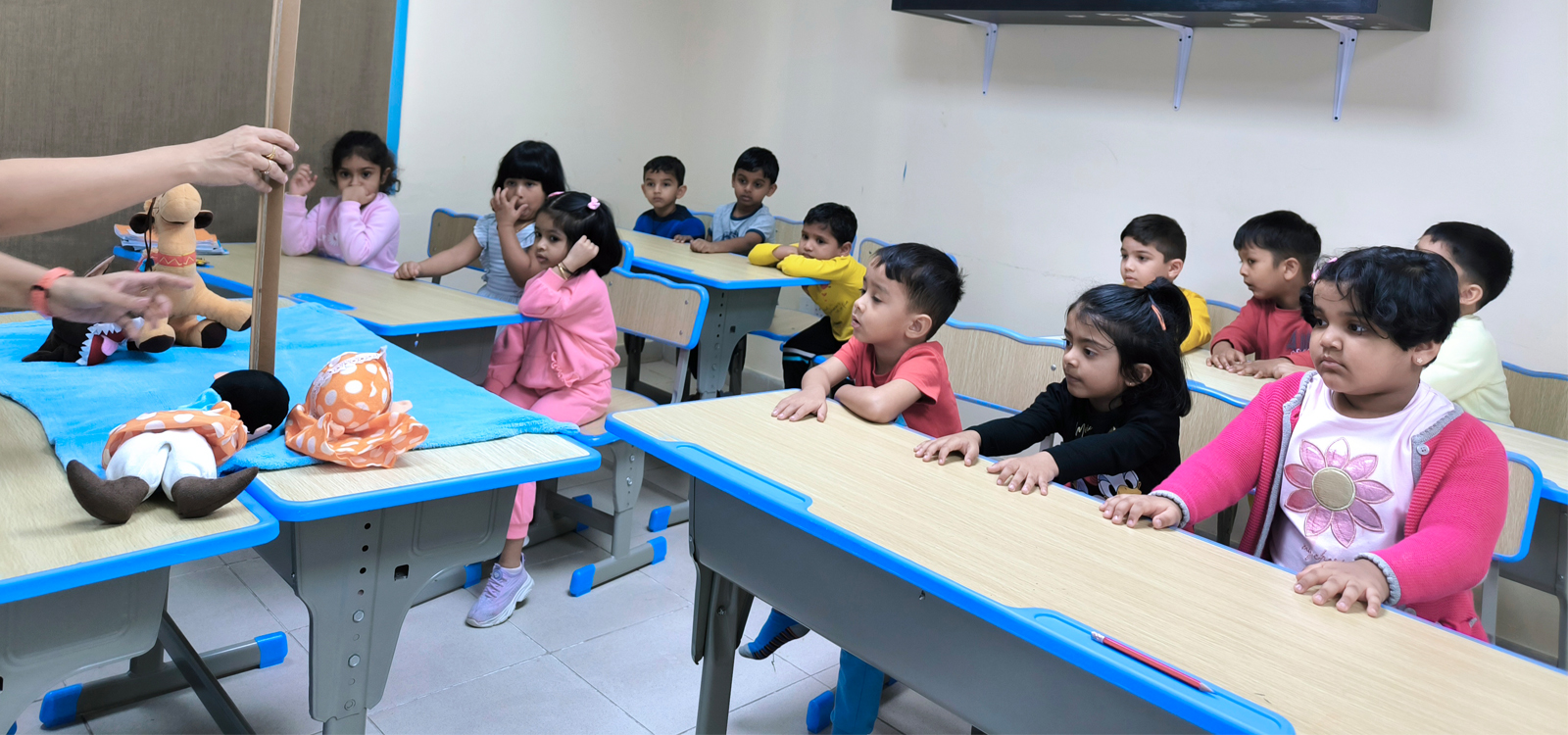Childhood is a pivotal phase where the seeds of lifelong learning are sown, and play serves as the cornerstone of this developmental journey. Play-based learning is at the forefront of this journey of growth. It can be supported through ample amounts of research to facilitate an all-rounded growth of human individuals in social, emotional, physical, and cognitive dimensions. Learning through hands-on activities, and interactional games stimulates curiosity. It inspires creativity and promotes a love for exploration.
Through play, children learn how to work together, communicate, and solve problems, thereby developing vital social skills. Emotional strength helps them face different challenges and deal with feelings in a playful environment. Physical activities develop motor skills, coordination, and healthy living. Imaginative and constructive play stimulates cognitive capacities like reasoning, memory, and innovation. Skill development courses designed for young learners can further enhance these abilities, providing structured opportunities to build foundational competencies.
The below infographic states seven key areas where play fosters growth and learning. These skills prepare them for academic success and life’s challenges by fostering adaptability, independence, and confidence— essential for thriving in an ever-changing world.


